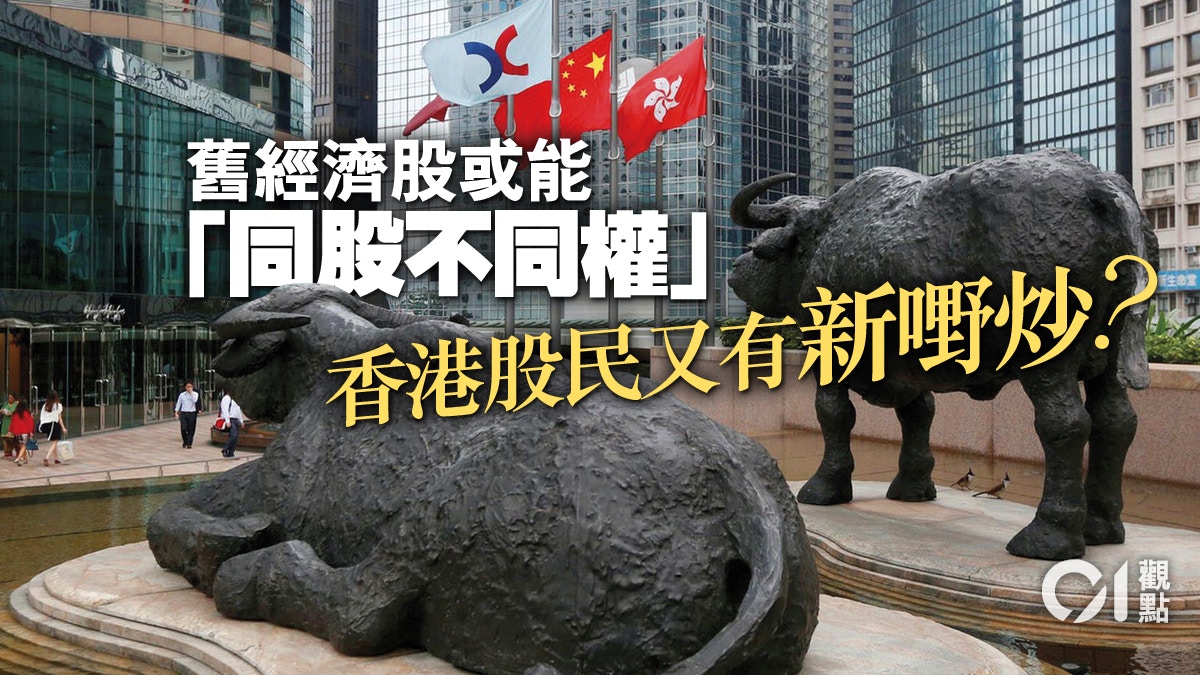01 view
Written by: Commentary Editing Room
2021-04-11 07:00
Last update date: 2021-04-11 07:00
Li Zekai's insurance company FWD Group (FWD) has repeatedly reported listing news. Foreign news agencies have earlier quoted the news that it has considered listing on multiple exchanges including Hong Kong in the past few months. Among them, the United States allows "same shares with different rights." (WVR), it is beneficial for Li Zekai to maintain control of FWD through his investment management company Yingke Expansion.
Although there is no final decision on where the FWD Group will eventually settle, whether more "same share and different rights" companies other than new economy companies should be allowed to go public is an issue that the Hong Kong Stock Exchange cannot avoid.
"Same share with different rights" refers to a listed company issuing at least two types of shares, including ordinary shares and privileged shares, the latter's voting rights will be disproportionately higher than its income rights.
Since April 2018, the Hong Kong Stock Exchange has reformed and allowed companies with "same shares with different rights" to be listed. Among them, "W shares" such as Xiaomi and Kuaishou are the meaning of the company's WVR structure.
According to existing regulations, companies listed with "same shares with different rights" are limited to "innovative industries" companies, and the voting rights of shares with weighted voting rights cannot theoretically be more than 10 times the voting rights of ordinary shares, but there are also some companies They are listed in Hong Kong as a "second capacity". For example, JD.com can obtain an exemption under 19C.12 of the Listing Rules and retain its special structure of "1 share and 20 votes" under certain conditions.
This type of shareholding structure is common in technology and innovation industry companies. The role is to allow these companies to release more equity to raise funds in the market, and at the same time prevent the management from losing the right to decide on the company's development direction due to the reduction in shareholding. Non-equity IPOs are also becoming more common in the market.
However, this type of fund-raising method originally used in the new economic field has gradually expanded to the old economic field in the foreign capital market. For example, Singapore allows the "same share with different rights" structure while not restricting the types of listed companies, which means that even if it is Old economic stocks with the same shares but different rights are now also expected to be listed to raise funds.
WVR becomes a double-edged listing rule to be complete
The same-share and different-rights approach facilitates companies to raise funds in the capital market, and from the perspective of the Hong Kong Stock Exchange, attracting WVR-structured old economy companies to go public is also a business opportunity.
However, under the system of same shares with different rights, retail investors who hold a small amount of common shares will also find it difficult to counter the management's decision by voting at the general meeting of shareholders.
The regulatory issues of these companies and the gray areas of WVR must also be checked by the Hong Kong Stock Exchange following the direction of the listing system. Eventually, cases may even be brought to court.
For example, on the issue of the conversion of privileged shares and common shares, shareholders with privileged shares have the ability to allow the company to repurchase common shares in the market and write them off, reducing the total issued share capital. The result is privileged shares on the market. The proportion of shares will increase in disguise, and because privileged shareholders need to maintain the proportion of privileged shares, some of their privileged shares will be "passively" converted into ordinary shares at the same time, which can be sold in the market in disguised form.
This method allows shareholders to use the extra power of privileged shares to make decisions that conflict with their interests through the company.
In such gray areas of WVR, whether it is how the judicial system should cooperate or how to make up for the details of the "old economy W shares" system, the authorities must pay more attention to protect the rights and interests of minority shareholders.
Xu Zhengyu, Secretary of the Treasury Bureau, pointed out that he is considering allowing non-tech companies with secondary listings to use the same-share non-technical companies to list in Hong Kong.
(Information Picture/Photographed by Lu Yiming)
Providing fund-raising methods must also protect retail investors
The Secretary for Financial Services and the Treasury, Xu Zhengyu, said at the end of last month that he was considering allowing non-tech companies with secondary listings to use the same-share non-technical companies to list in Hong Kong.
The Hong Kong Stock Exchange is responsible for the review of the eligibility for listing, and how the authorities will discuss with the Hong Kong Stock Exchange is a matter of concern.
It is absolutely necessary to adjust the listing rules to follow the changes in global corporate fundraising methods. However, in other places where WVR corporate supervision is relatively lax, a collective litigation mechanism is set up to protect the interests of small shareholders. The Hong Kong authorities should also refer to them.
For example, while banning the listing rules, the government can study whether to implement a class action system. For disputes in the capital market of Hong Kong, the government should also provide special support for litigation.
The class action lawsuit allows small shareholders to join other investors who have encountered the same problem to share the relevant costs of the incident. When the court decides that the group wins the lawsuit, the group will enjoy the same rights. This law is used in China, the United States, and Europe. Both are implemented.
The class action is not specifically designed for WVR, but its objective effect is to provide another way to protect small shareholders in court in addition to the "same share and same rights" shareholder vote.
With the emergence of various fund-raising methods such as SPAC in the global capital market, the government should not only study and improve the regulatory mechanism for each fund-raising method, how to resolve various market disputes that cannot be predicted early through judicial channels is also a feasible response measure for the government.
Seize the opportunity of returning to China to consolidate the status of financial center
Can the Hong Kong Stock Exchange attract Tesla to list in Hong Kong?
SPAC may become the "big fat" of the Hong Kong Stock Exchange
The Secretary for Financial Services and the Treasury, the Secretary for Financial Services and the Treasury Xu Zhengyu 01 Viewpoints






/cloudfront-eu-central-1.images.arcpublishing.com/prisa/MHGXPOLQYQNCEWO3X4B45KQDNA.jpg)








